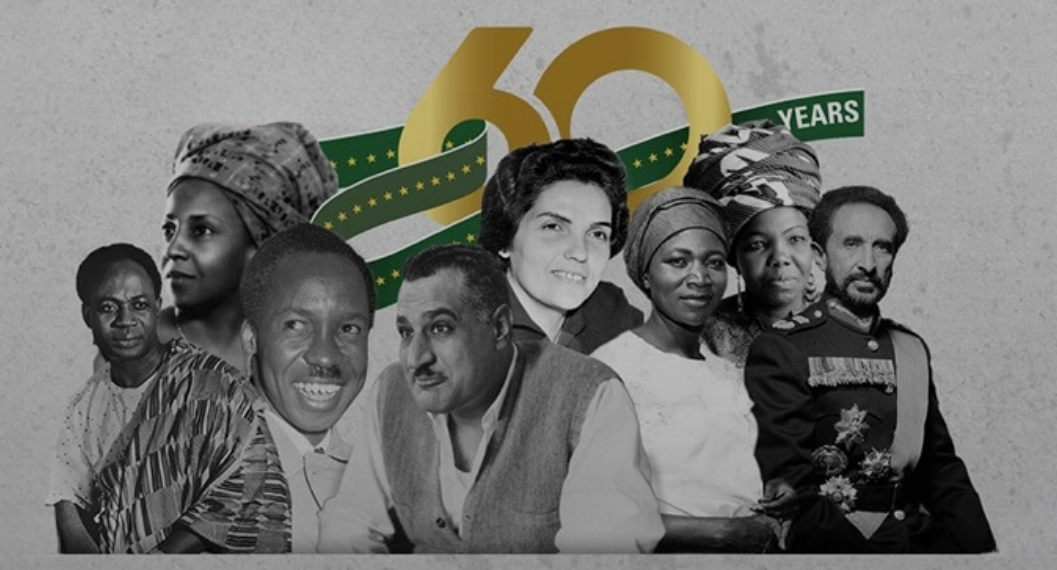For centuries, Africa was divided by colonial borders and foreign rule, with its people subjected to outside control. However, as the tide of independence movements swept across the continent, a new idea emerged—the dream of African Union and African Unity. This vision took shape in 1963, when 32 independent African nations gathered in Addis Ababa, Ethiopia, to form the Organization of African Unity (OAU), the foundation of today’s African Union. Their mission: to dismantle colonial rule and forge a path toward lasting African unity and cooperation.
The Birth of the OAU and the Call for Unity
The first OAU Summit was a turning point in African history. Leaders from across the continent addressed the challenges ahead. Emperor Haile Selassie of Ethiopia declared: “May this convention of union last 1,000 years.” But it was Ghana’s Kwame Nkrumah who delivered the most passionate call for immediate African unity:
“We must unite now or perish.”
His words became a defining moment, shaping the course of African politics for decades to come. Today, Africa continues to navigate its path toward economic and political integration through the modern successor of the OAU—the African Union (AU). (African Union Official Site)
The Mission of the African Union
At its core, the African Union is about integration, collaboration, and empowerment. Its mission is to:
- Accelerate economic development through regional partnerships.
- Maintain peace and security across the continent.
- Give Africa a unified voice on the global stage.
How the AU is Shaping Africa’s Future
The AU works to strengthen African unity in several ways:
1. Economic Integration
Through initiatives like the African Continental Free Trade Area (AfCFTA), the AU is working to eliminate barriers to trade, allowing businesses and industries to thrive across borders. AfCFTA is set to create the world’s largest free trade area, boosting intra-African trade and economic growth. (UNECA Report)
2. Peace and Security
The AU has taken bold steps to address conflicts across the continent. From deploying peacekeeping forces to leading diplomatic negotiations, it plays a key role in conflict resolution efforts in regions such as Sudan, the Democratic Republic of the Congo, and the Sahel.
3. Strengthening Pan-African Identity
Beyond politics and economics, the AU fosters a sense of unity through cultural exchange, education, and scientific collaboration. Programs promoting youth engagement, technology transfer, and African-led innovations are paving the way for a brighter future.
Challenges Facing the African Union
Despite its vision, the AU faces significant hurdles that threaten to slow its progress:
- Limited Financial Resources: Unlike the European Union, much of the AU’s budget still relies on foreign contributions, raising concerns about financial independence.
- Political Divisions: With 55 member nations, each with different political systems, economies, and priorities, finding common ground is a complex task.
- Conflict Resolution Challenges: The AU’s ability to resolve crises is tested in unstable regions, where diplomatic efforts sometimes fall short of achieving long-term peace.
Can the AU Overcome These Challenges?
Despite the obstacles, the African Union remains central to Africa’s vision for the future. With greater investment in infrastructure, stronger governance, and a renewed focus on self-sufficiency, the AU has the potential to transform the continent.
As Africa’s young population takes center stage, the push for a more united, economically vibrant, and politically stable Africa is stronger than ever. But can the African Union rise to the challenge?
One thing is certain: the future of Africa depends on unity, leadership, and vision. The AU is not just an institution—it is a symbol of what Africa can achieve when it stands together.
Join the Conversation
What role do you think the African Union should play in shaping Africa’s future? Share your thoughts in the comments below!
📌 Related: Fastest Growing Economies in Africa (2025)
📌 Related: A Path to Economic Independence
